5 Best Applications for Acrylamide Resin in Modern Industries
Table of Contents
- Top Advantages of Acrylamide Resin in Industrial Applications
- Key Industries Benefiting from Acrylamide Resin Utilization
- Comparative Analysis of Acrylamide Resin vs. Traditional Materials
- Innovative Uses of Acrylamide Resin in Manufacturing Processes
- Environmental Considerations in Acrylamide Resin Applications
- Future Trends in Acrylamide Resin Development Across Sectors
- FAQS
- Conclusion
- Related Posts
Hey there! So, in today’s fast-changing industrial world, the need for advanced materials keeps on growing. One star player lately is Acrylamide Resin — it’s used in so many different applications because of its amazing properties like being really stable and versatile. Recent market reports suggest that the global acrylamide scene might hit around $8.9 billion by 2027, growing at an annual rate of about 5.8%. As companies push for better performance and sustainability, finding reliable suppliers of acrylamide derivatives is more important than ever. One company that’s been making waves is QINGDAO OUBO CHEMICAL CO., LTD, which has been around since 2011. They’re specialists in making cationic, anionic, and nonionic polyacrylamide, really positioning themselves well in this space. In this blog, I’ll walk you through the top five uses of Acrylamide Resin in today’s industries — showcasing some innovative solutions that boost efficiency and help meet the constantly changing market demands.
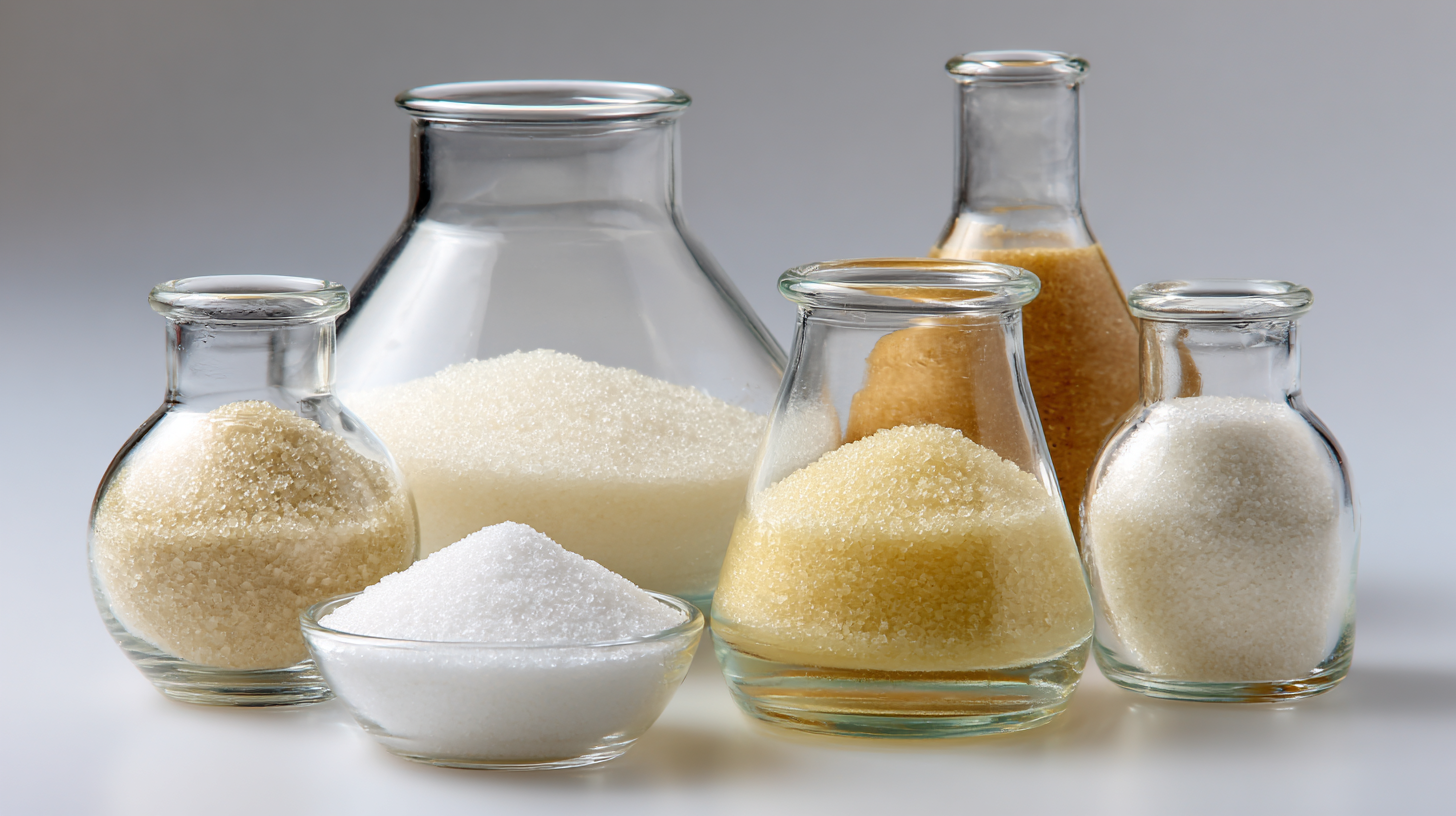
Top Advantages of Acrylamide Resin in Industrial Applications
Acrylamide resin has really been making waves in a bunch of modern industrial stuff lately, mostly because of its pretty cool properties. One of the biggest perks? Its awesome ability to stick strongly—so it’s a go-to for things like coatings, adhesives, and sealants where good bonding really matters. Plus, it’s super versatile and can stick to all sorts of materials—metals, plastics, glass—you name it. That’s why it’s used in industries ranging from construction to auto manufacturing.
Another thing I should mention is how tough this resin is against the elements. It holds up well against heat, moisture, and even chemicals, which means it lasts longer and stays reliable even in tough conditions. That’s why it’s a popular choice for making composites and packaging, especially when stuff is exposed to harsh environments. Oh, and the best part? It can be customized for different uses through copolymerization, so industries can tweak it to meet their specific needs. All in all, acrylamide resin is pretty impressive and useful across a bunch of fields.
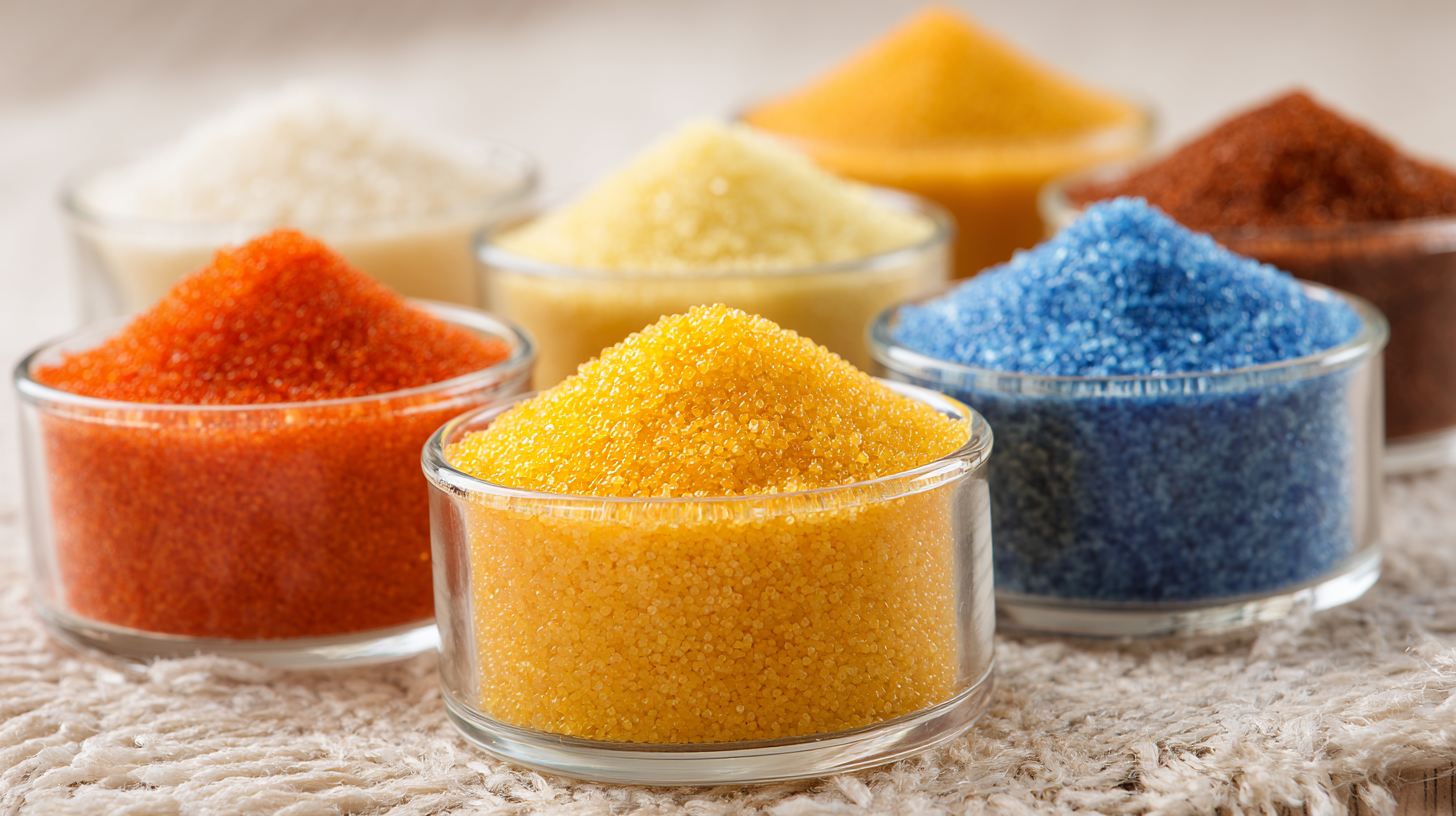
Key Industries Benefiting from Acrylamide Resin Utilization
Acrylamide resin has really found its place in a bunch of modern industries, thanks to its impressive qualities like toughness, ability to handle temperature changes, and overall versatility. Industries like construction, automotive, and electronics are just some of the sectors that make good use of it. They use acrylamide resin for all kinds of stuff—from glues and coatings to insulation materials. Its special chemical makeup allows it to perform really well, especially in those tough, high-demand situations.
In the world of construction, for example, acrylamide resin is known for helping create strong, durable composites. Recent studies have even looked into blending phenol-formaldehyde resins with things like cellulose and lignin nanomaterials to boost their mechanical strength. It’s pretty exciting because it connects biology and chemistry, opening doors for more eco-friendly building materials. This means we can build strong structures while also being kinder to the environment.
If you're looking to get the most out of acrylamide resin in your projects, a good tip is to test your composite materials thoroughly to make sure they work well with other stuff you're using. Also, keep an eye on environmental impact — choosing greener resins when possible is a smart move. Staying updated on the latest research can help you improve performance and make your projects more sustainable. Using acrylamide resin together with nanomaterials can give you stronger, more durable structures while also reducing your environmental footprint — a win-win, right?
Comparative Analysis of Acrylamide Resin vs. Traditional Materials
Acrylamide resin has really started to make waves as a pretty versatile alternative to the usual materials we’ve been using across different industries, especially in dental work and composite applications. One cool thing is how they modify polyvinyl alcohol with acrylamide, which actually boosts the properties of the composite films—think lower dielectric constants, for example. It’s kind of interesting because this innovative approach, which involves a Michael addition reaction, reduces the polar segments in these materials. Honestly, this marks a pretty big shift in how we design these materials, and it might even change how we think about electrical applications in the future.
On the dental side of things, acrylamide's impact is just as exciting. Recent studies have been looking into how it performs in creating temporary restorations with 3D printing—pretty cutting-edge stuff! Not only do these studies explore things like biofilm formation on acrylic resins, but they also highlight how important the mechanical and physical properties are to making dental materials work well. Plus, research into adding acrylamide monomers shows that it can really boost the flexural strength of acrylic denture bases, which is a big deal. All these advancements show how more and more, acrylamide resin is becoming a go-to choice for new innovations in industry. It’s an exciting time for sure!
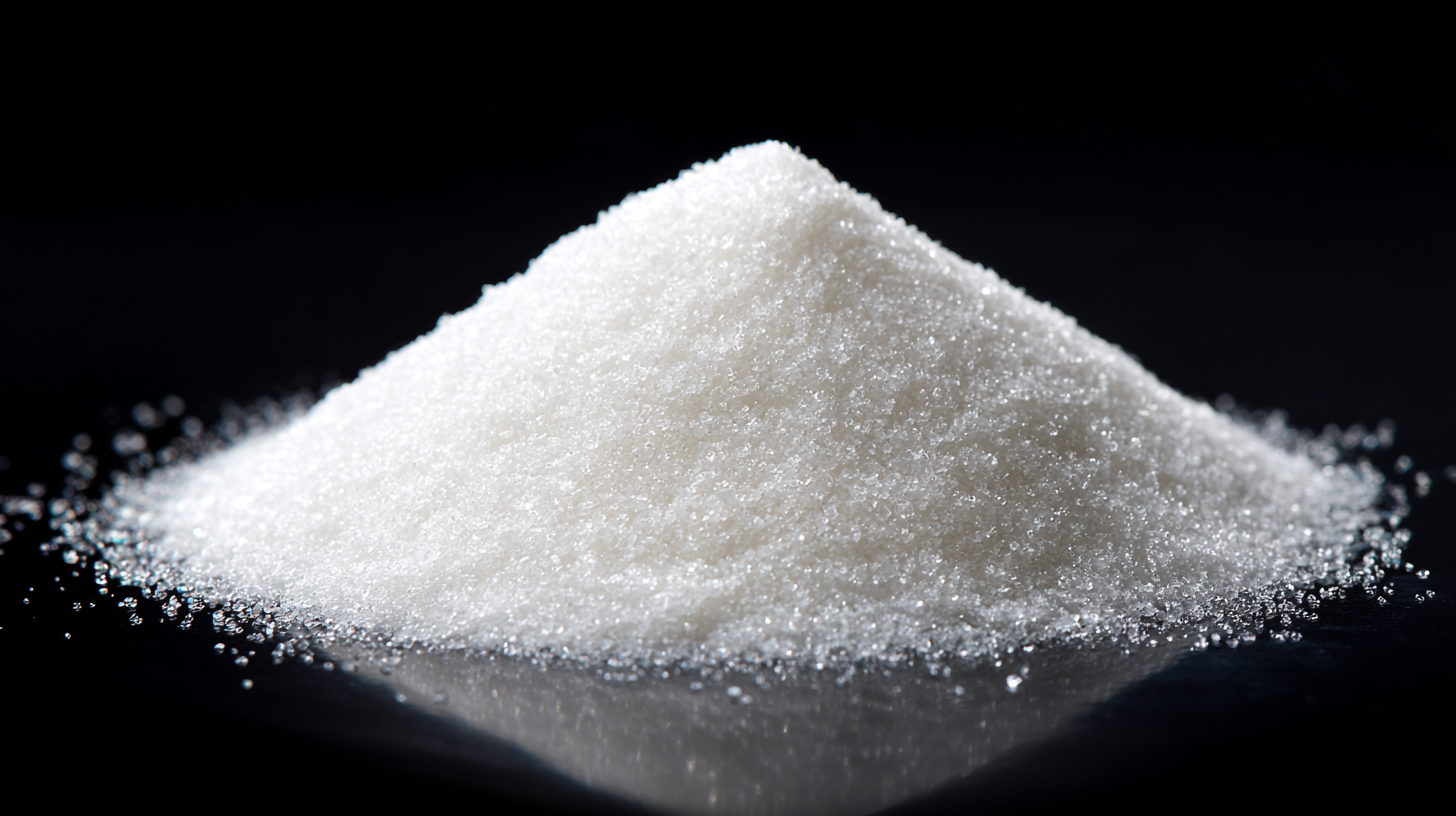
Innovative Uses of Acrylamide Resin in Manufacturing Processes
Acrylamide resin has really become quite a versatile material these days, finding its way into all sorts of industries. Can you believe that the global market for it is expected to hit around $5.55 billion by 2032? It shows just how important it’s become in manufacturing. From electronics and automotive stuff to other high-tech fields, companies are turning to acrylamide resin because of its amazing sticking power and how well it stands up to super tough conditions.
One of the coolest uses I’ve seen is in making composite materials. Here, acrylamide resin gives products that extra strength and durability — exactly what you need for long-lasting stuff. It’s also pretty common in coatings and sealants these days, mainly because it resists chemicals and moisture like a champ. As industries keep pushing to make products last longer and perform better, acrylamide’s role is only growing.
**Tip:** When you’re picking out acrylamide resin for your project, it’s smart to pay attention to its thermal stability and mechanical qualities — making sure it ticks all the boxes will help you get the best results.
On top of that, acrylamide resin is really making waves in 3D printing and additive manufacturing. Its knack for creating complex, detailed structures with high precision makes it a go-to choice for prototypes and even final products.
**Tip:** Stay updated on the latest advancements in acrylamide production tech — new developments could make your projects more eco-friendly and budget-friendly too.
Environmental Considerations in Acrylamide Resin Applications
Acrylamide resin is pretty important in a bunch of modern industries these days. You know, things like water treatment, oil recovery, and making paper and textiles. It’s super versatile and works really well in those areas. But as industries start to pay more attention to sustainability and being eco-friendly, people are really taking a closer look at the environmental impact of using acrylamide. It’s definitely something we can’t ignore — we need to figure out how to manage it responsibly to avoid causing harm.
There was this study from the American Chemical Society that pointed out if acrylamide isn’t disposed of properly, it can contaminate soil and water — and that’s bad news for aquatic life. The EPA has also flagged it as a chemical that needs more review because it might be carcinogenic. That’s why companies like Qingdao Oubo Chemical Co., Ltd., which supply things like cationic, anionic, and nonionic polyacrylamide, really have a big part to play here. By adopting better manufacturing methods and being responsible in how they use their products, they can definitely help reduce environmental risks while still meeting industry needs.
Plus, it looks like the industry is shifting toward greener options. Researchers are working on new formulas and tweaks to traditional acrylamide resins to make them more biodegradable and less toxic. That’s a smart move not just because it lines up with global sustainability goals, but also because consumers are getting more conscious about eco-friendly products. As the focus moves toward more environmentally friendly practices, it’s crucial for everyone involved — companies, researchers, regulators — to team up and push for innovations that balance top-notch performance with protecting the planet.
Future Trends in Acrylamide Resin Development Across Sectors
As industries keep evolving, we're seeing more and more ways that acrylamide resin is being used — really opening doors for all sorts of innovative solutions across different fields. Looking ahead, it seems like there’s a big push toward eco-friendly formulations, mainly because everyone’s talking more about sustainability these days. Companies are pouring resources into research, trying to develop bio-based acrylamide resins that not only perform well but also have less of an environmental footprint. This shift could make a huge difference in industries like construction, packaging, and even biomedical fields, where the demand for greener materials is just skyrocketing.
Oh, and if you’re exploring different acrylamide resin options, keep in mind the whole lifecycle impact — it’s worth checking if your suppliers prioritize sustainability in how they make things. That way, you’re making smarter, more responsible choices.
On top of that, advances in nanotechnology are probably going to boost the properties of these resins quite a bit. Adding nanoparticles can make them stronger, more durable, and better at handling heat — meaning they could be used in even more applications like coatings, adhesives, and composites. Honestly, it’s exciting to think about all the innovations that might come out of this.
If you’re interested in staying ahead of the curve, I’d recommend keeping an eye on the latest research around nanotech and acrylamide resins. Tuning into industry webinars or conferences is a great way to get firsthand insights into these trending developments.
5 Best Applications for Acrylamide Resin in Modern Industries
FAQS
: The primary benefits of acrylamide resin include excellent adhesion qualities, allowing it to bond strongly with various substrates like metals, plastics, and glass. This versatility makes it suitable for coatings, adhesives, and sealants.
Acrylamide resin is durable against heat, moisture, and chemicals, ensuring longevity and reliability in demanding conditions, making it valuable for products like composites and packaging materials.
Acrylamide resin is commonly used across various industries, including construction, automotive, water treatment, oil recovery, and the production of paper and textiles.
Environmental concerns include the potential for soil and water contamination due to improper disposal, as well as its potential carcinogenic effects, which have led regulatory bodies like the EPA to review its impacts.
Companies are utilizing advanced manufacturing processes and promoting responsible use to minimize environmental impacts, alongside developing more eco-friendly formulations that enhance biodegradability and reduce toxicity.
The ability to tailor acrylamide resin through copolymerization allows industries to create customized solutions that meet specific operational requirements, enhancing its functional performance.
An emerging trend is the shift towards greener practices, with the development of innovative alternatives and modifications to traditional acrylamide resins that align with sustainability goals and consumer demand for eco-friendly products.
Collaboration among stakeholders is essential for advancing research and development initiatives that prioritize both product performance and environmental integrity amidst an industry shift towards sustainability.
Specific products that benefit from acrylamide resin include coatings, adhesives, sealants, composites, and packaging materials that require strong bonding and environmental durability.
The versatility of acrylamide resin allows it to bond with various substrates and be engineered for diverse applications, making it a valuable resource in multiple industrial sectors.
Conclusion
Acrylamide Resin has really become a big deal in modern industries these days. It’s praised for its awesome bonding capabilities and how flexible it is across different applications. You know, sectors like water treatment, oil recovery, and paper making are actually reaping the benefits of its unique features — often outshining traditional materials in many ways. When you compare it to other options, it’s pretty clear that Acrylamide Resin performs better, which is why a lot of companies are turning to it for their innovative manufacturing needs.
Plus, as many industries are trying to go greener and more sustainable, the environmental impact of using Acrylamide Resin is becoming a hot topic. There's a noticeable shift towards developing safer, more eco-friendly versions of these products. Companies like Qingdao Oubo Chemical Co., Ltd. are really leading the charge here, providing a variety of polyacrylamides—cationic, anionic, and nonionic—and helping push the boundaries of how Acrylamide Resin is used across all sorts of industries. It’s an exciting time to see how these advancements are shaping the future!
Related Posts
-

How to Effectively Use Chemical Flocculant for Improved Water Treatment
-

The Ultimate Checklist for Selecting the Right Mixed Polyacrylamide for Your Business Needs
-

How to Optimize Your Processes with Best Anionic Polyacrylamide Tech Grade for Maximum Efficiency
-
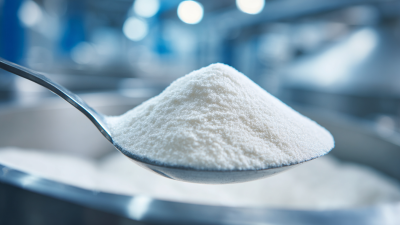
Comparative Analysis of Nonionic Polyacrylamide Versus Other Polymer Options in Industry Applications
-
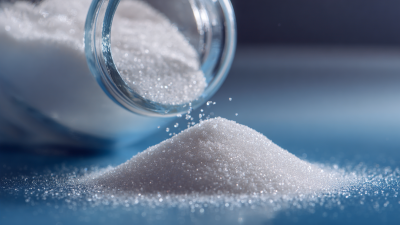
Essential Criteria for Selecting Quality Manufacturers of Best Water Treatment Polyacrylamide
-
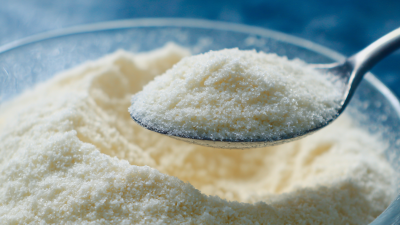
Unlocking the Advantages of Polyacrylamide Complex: A Game Changer for Industry Efficiency
Blog Tags:

Ava
-

Phone
-

E-mail
-

Whatsapp
-

WeChat
Jessy Lin
Paul Zhou:8613356391894 Eric Wong:8615963245439Emily Wu:8617866856171
-

WeChat
Paul Zhou

-

WeChat
Eric Wong

-

WeChat
Emily Wu








